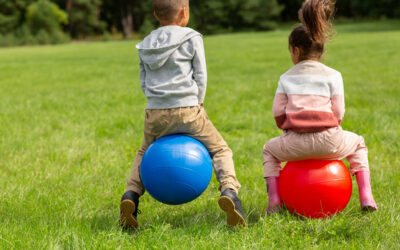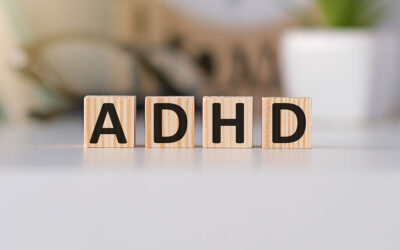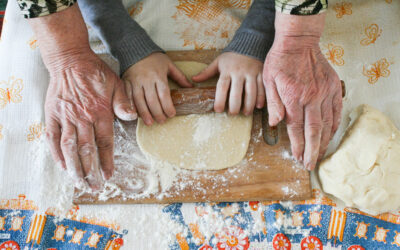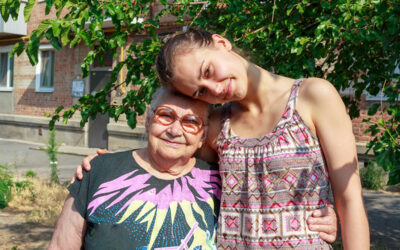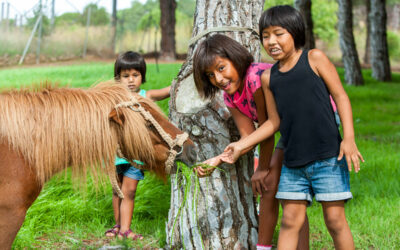Articles
Healing from Trauma/Neglect/Abuse
Practical Tips for Navigate the Tween and Teen Years with Your Relative Child
The tween and teen years can get a bad rap – folks assume an adolescent will be rebellious, acting out, or stuck behind a screen with a sullen look on their face. While sometimes those things are true, it’s also true that the teen years can be rich with rewarding...
Welcoming a New Child to Your Home
When you agree to open your home to a relative child, you are agreeing to so much more than providing a clean, safe bed and regular meals. You are agreeing to offer them an emotionally and physically safe place to heal from the challenges they encountered before...
How to Build Your Family’s Resilience
We all want the children we love to be able to face hard times and cope with them successfully. The ability to “bounce back” from life’s challenges can be part of a child’s naturally wired temperament. However, other kids may need help learning how to develop their...
Impacts of Prenatal Exposure to Alcohol and Drugs
5 Practical Tips to Help a Child Learn Organizational Skills
A child who had prenatal exposure to drugs or alcohol or struggles with attention deficit hyperactivity disorder (ADHD) often struggles to get and stay organized. You probably feel like there is too much chaos getting them out the door to school every morning. That...
Explaining Prenatal Alcohol or Drug Exposure to Your Grandchild
Are you raising a grandchild (or niece or cousin) whom you suspect was prenatally exposed to alcohol or drugs? Do they have a confirmed diagnosis? You may wonder when and how to explain prenatal exposure to them. Avoiding the topic can lead to shame, confusion, and...
Prenatal Exposure: Myths vs. Facts
When you are raising a family member’s child, you might feel overwhelmed by the amount of information – including faulty information - you hear about prenatal substance exposure. To be sure, it’s a steep learning curve to understand the impacts of alcohol on a...
Challenging Behaviors
Potty Training a Child Who Had Prenatal Substance Exposure
Potty training your young grandchild, niece, or nephew is a huge milestone in gaining independence for you all. Grandparents and relative caregivers may feel overwhelmed with where to start and how long it will take. Every child is different, and there is a wide range...
Helping Kids with ADHD Boost Their Mental Health
Many of the children you are raising have experienced painful losses or abuse. Others were exposed during pregnancy to alcohol or drugs. Still, others have both of those challenges in their history and are living with the impacts today. Those impacts may show up in...
Maintaining Your Connection While Helping a Child Learn How to Manage Anger
Anger is a normal human emotion, but it can be scary for many of us to express or manage. When a child grows up with unsafe expressions of anger, or when they are no taught appropriate ways to work through their angry feelings, they may bubble over and act out anger...
ADHD
No Results Found
The page you requested could not be found. Try refining your search, or use the navigation above to locate the post.
Disrupting Birth Order
No Results Found
The page you requested could not be found. Try refining your search, or use the navigation above to locate the post.
Helping A Child Heal from Sexual Abuse
No Results Found
The page you requested could not be found. Try refining your search, or use the navigation above to locate the post.
School Issues for Foster & Kinship Kids
No Results Found
The page you requested could not be found. Try refining your search, or use the navigation above to locate the post.
Technology/Internet and Our Kids
No Results Found
The page you requested could not be found. Try refining your search, or use the navigation above to locate the post.
Self-Care for Kinship and Foster Parents
4 Quick Tips for Protecting Your Marriage or Partnership
Marriage or life partnership is hard work. Balancing your needs as an individual with the needs of your relationship requires attention to your schedules and developing habits to carve out the time to nurture this connection. When raising a grandchild, niece, or...
Tips to Help Grandparents Raising Grandchildren
When you are a grandparent suddenly raising your grandchildren, it’s easy to feel overwhelmed by the changes and needs you must consider. You might also be an aunt or family friend raising young children from your extended family or tribal community. Many factors can...
Do You Have A Supportive Safety Net?
Are you a grandmother or aunt raising a loved one's child? Do you have several kids regularly in and out of your home for the love, nurture, and stability you offer? Partnering with others in your community to care for these young people is a privilege and honor....
Relationship with Child’s Parent
No Results Found
The page you requested could not be found. Try refining your search, or use the navigation above to locate the post.
Working Together For the Good of the Child In Your Care
The Benefits of Raising a Grandchild or Other Young Loved One
When you first took in your grandkids (or other loved one), you may have done it because it was “the right thing to do.” The kids didn’t do anything to deserve this, and family cares for family. But it still feels hard. It might help to focus on the significant...
Practical Ways to Set Your Grandchild Up for Success
It's challenging to raise your grandchild (or other loved one) in today's world. Your grandchild’s early life experiences can make your role in their life feel overwhelming. The impacts of their trauma or prenatal exposure to drugs or alcohol can create many obstacles...
Welcoming a Relative Child When You Have Children Already in the Home
Adding a child to your family changes how you function in your home. Frequently, the kids already living in your home feel these changes most profoundly. This article will refer to them as "resident children." Tips to Prepare Resident Children Whether you are offering...
Raising Adolescents (tweens/teens)
No Results Found
The page you requested could not be found. Try refining your search, or use the navigation above to locate the post.
Supporting Healthy Relationships/Attachment
No Results Found
The page you requested could not be found. Try refining your search, or use the navigation above to locate the post.
Phone
This website was supported with funding from the U.S. Department of Health and Human Services, Administration for Children and Families’ Children’s Bureau through the Improving Child Welfare Through Investing in Family grant #HHS-2021-ACF-ACYF-CW-1921. The purpose of this grant is to provide an array of kinship preparation services and ongoing kinship supports, and provide shared parenting to build trusting relationships between all out-of-home caregivers and parents of children/youth in foster care to ensure parents and families remain actively involved in normal child-rearing activities.
This website is supported by Grant Number 90CW1149 (HHS-2021-ACF-ACYF-CW-1921) from the Children’s Bureau within the Administration for Children and Families, a division of the U.S. Department of Health and Human Services. Neither the Administration for Children and Families nor any of its components operate, control, are responsible for, or necessarily endorse this website (including, without limitation, its content, technical infrastructure, and policies, and any services or tools provided). The opinions, findings, conclusions, and recommendations expressed are those of the author(s) and do not necessarily reflect the views of the Administration for Children and Families and the Children’s Bureau.



